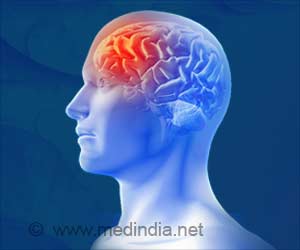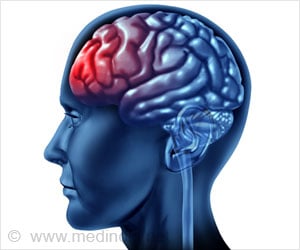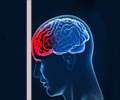Novel tool measures the brain’s vital signs using complex brainwave data as a new study finds that existing concussion tests often have persistent, undetected deficits in attention and processing and may not detect brain function changes in young ice hockey players.

‘Widely used clinical concussion analyses miss significant changes to brain function in hockey players who have been cleared to return to play. But, new research studies the effects of concussions and can now measure whether treatments are effective and whether it is safe for the athletes to return to play.’
Read More..




The study showed that "brain vital signs" - a breakthrough for analyzing complex brainwave data to provide a simple, practical and objective physiological evaluation of brain function - is more sensitive in detecting brain function changes related to concussion than existing clinical tests for a concussion. Brain vital signs translate complex brain waves from portable electroencephalography (EEG) - measurable at the rink-side - into fast, user-friendly and intuitive results.Read More..
Study's findings:
The research team found that brain vital signs detected neurophysiological impairments, such as attention and cognitive processing deficits, in players who had been diagnosed with concussions and were cleared for return-to-play. Surprisingly, the team also found significant delays in cognitive processing for players who were not diagnosed with concussions at any time during the season (sub-concussive effects).
This work emerged from an on-going Canada-U.S. collaboration between neuroscientists operating out of the Health and Technology District in Surrey, British Columbia, a science and innovation community, together with Mayo Clinic Sports Medicine Center in Rochester, Minnesota. Through a consortium of initiatives and technologies known as BrainNET, the Health and Technology District has designed a clinical-academic-innovation network dedicated to bringing advances in neuro-technologies to individual improvements in brain health.
Dr. Ryan D'Arcy, the Health and Technology District's co-founder, SFU professor and the study's senior author, describes the study as an important step forward in concussion evaluation and treatment management.
Advertisement
According to Shaun Fickling, the study's lead author and a Ph.D. student at SFU, "What's even more surprising is that not only did we find undetected physiological impairments in players diagnosed with concussions who were cleared to play, we also found that players who were not diagnosed with concussions showed decreased cognitive processing speed postseason - thought to be the result of repetitive 'sub-concussive impacts.'"
Advertisement
Dr. Michael Stuart, M.D., professor of orthopedic surgery and the co-director of Mayo Clinic Sports Medicine, further explains, "Concussion in sports, especially in ice hockey, is a global public health issue with an estimated 1.6 million to 3.8 million sports-related concussions occurring per year in the United States alone. There is a growing urgency to develop practical approaches that use objective, physiological measures, which are also rapidly and easily deployable in sport and clinical settings so medical staff can better diagnose and treat concussions."
About the study:
The research team monitored and tracked 47 Tier III, Junior A, male ice hockey players over two seasons, and divided the players into two groups: players who were diagnosed with concussions and players who were not. They used brain vital signs to conduct assessments at baseline, post-injury, return-to-play, and post-season time points.
In contrast to conventional, lengthy and cumbersome EEG methods that generate event-related potentials (ERPs), brain vital signs extract these physiological measurements in less than 10 minutes and are easily and fully deployable within a variety of sporting and clinical settings.
The brain vital signs framework measured three core, well-established ERP brain responses: the N100 for auditory sensation; the P300 for basic attention; and the N400 for cognitive processing. The amplitudes and latencies for all three responses are converted to standardized scores through a normative transformation to produce a total of six brain vital signs measurements.
Results:
- Concussion resulted in significantly increased amplitude and delayed latency scores for all six brain vital signs metrics (p < 0.0001). Players who were diagnosed with concussions showed significant changes in all six brain vital signs scores, relative to their baseline assessments.
- A major finding was that players who had been cleared to return to play after their concussions (according to standard protocols) still showed impairments in the measure of basic attention. This shows that the current protocols are not sensitive enough to detect the subtle changes in brain function occurring after injury.
- The researchers also found changes occurring over the duration of the season in the group of players who were not diagnosed with concussions, raising further concerns around the emerging concept of "sub-concussive" impacts. Importantly, these "sub-concussive" impacts were associated with the players showing specific and significant delays in cognitive processing speed.
Source-Eurekalert













